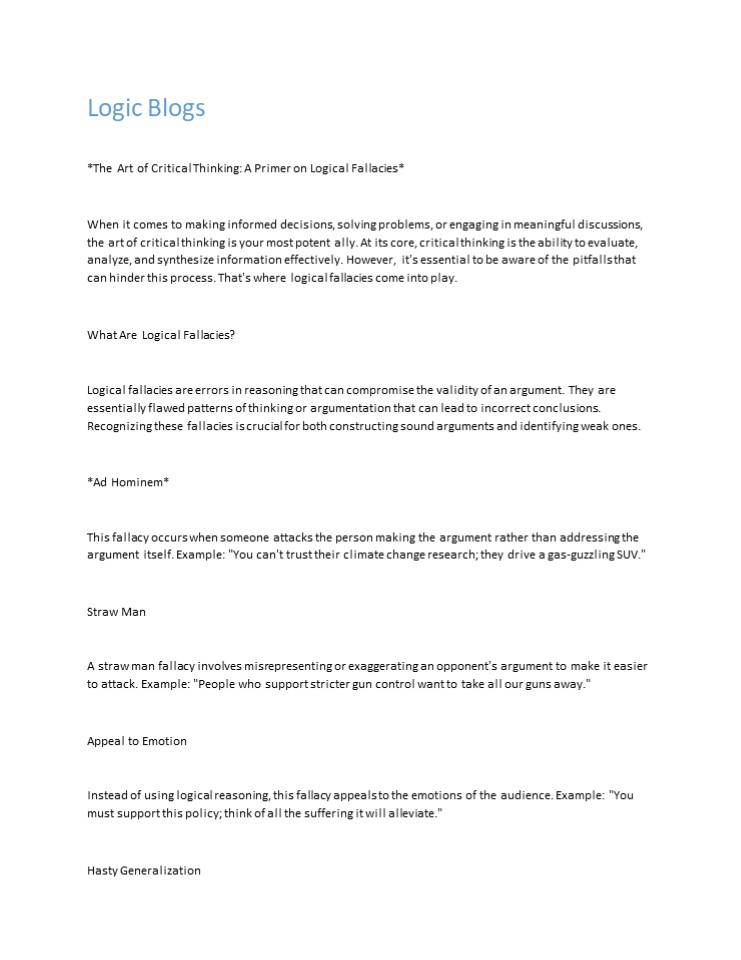Mastering Logical Fallacies - PowerPoint PPT Presentation
Title:
Mastering Logical Fallacies
Description:
Logic Blogs: Your gateway to sharpening critical thinking and reasoning skills. Explore the world of logical thought, from fundamental principles to advanced problem-solving, in concise, engaging posts. Enhance your cognitive skills, make informed decisions, and unravel the art of clear thinking with us – PowerPoint PPT presentation
Number of Views:2
Title: Mastering Logical Fallacies
1
Logic Blogs
The Art of Critical Thinking A Primer on
Logical Fallacies When it comes to making
informed decisions, solving problems, or engaging
in meaningful discussions, the art of critical
thinking is your most potent ally. At its core,
critical thinking is the ability to evaluate,
analyze, and synthesize information effectively.
However, it's essential to be aware of the
pitfalls that can hinder this process. That's
where logical fallacies come into play. What
Are Logical Fallacies? Logical fallacies are
errors in reasoning that can compromise the
validity of an argument. They are essentially
flawed patterns of thinking or argumentation that
can lead to incorrect conclusions. Recognizing
these fallacies is crucial for both constructing
sound arguments and identifying weak ones. Ad
Hominem This fallacy occurs when someone
attacks the person making the argument rather
than addressing the argument itself. Example
"You can't trust their climate change research
they drive a gas-guzzling SUV." Straw Man A
straw man fallacy involves misrepresenting or
exaggerating an opponent's argument to make it
easier to attack. Example "People who support
stricter gun control want to take all our guns
away." Appeal to Emotion Instead of using
logical reasoning, this fallacy appeals to the
emotions of the audience. Example "You must
support this policy think of all the suffering
it will alleviate." Hasty Generalization
2
- This fallacy occurs when someone draws a broad
conclusion from a small sample. Example "I met
two rude people from that country, so everyone
from there must be rude." - False Dichotomy
- Presenting an argument as if there are only two
options when there are more possibilities.
Example "You're either with us or against us." - Why Recognize Logical Fallacies?
- Recognizing logical fallacies is crucial for
several reasons - Effective Communication Avoiding logical
fallacies in your arguments helps you communicate
more clearly and persuasively. - Sound Decision-Making In daily life, the ability
to recognize fallacious reasoning can lead to
better decision-making.































